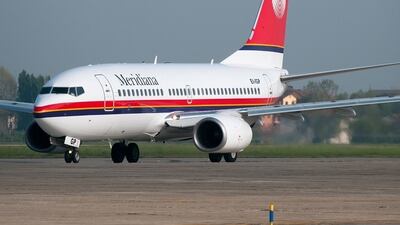At the Romazzino Hotel, there was unusual activity at the beginning of May. Staff were working for the inauguration of the new summer season in Costa Smeralda, the five-star luxury destination on the island of Sardinia off the coast of Italy. Historically, the hotel opened in late May which was a bit of shame for a place where the hot season spreads from mid-April to mid-October. The early opening is one the innovations brought by the new owners: the sovereign fund of Qatar, the QIA. The Costa Smeralda is a resort area where international VIPs and billionaires gather every year – the list includes the Russian steel magnate Alisher Usmanov and Bill Gates. The QIA bought it from the Lebanese-American investor Tom Barrack, for an undisclosed amount (reportedly €700 million, including debt). At the same time, Qatar Airways owns a majority stake in Meridiana, the Sardinian airline focused on tourism.
Romazzino, a whitewash minimal building in the shape of an ancient Sardinian prehistoric cave, is one of the five hotels in the Costa Smeralda: the others including the top-notch Cala di Volpe (which has served also as a James Bond movie location) and the world-class golf club Pevero. Good news, though, has been offset by a not-so-good announcement: Italian prosecutors are now investigating the sale of the Costa Smeralda. Mr Barrack, a financial supporter of the US president Donald Trump, has allegedly defrauded the Italian tax system.
Nevertheless, fiscal issues in Sardinia could be the lesser of the current problems facing Qatar. The country has for some weeks been embroiled in a dispute with its Gulf neighbours: its border with Saudi Arabia, the only one on the mainland, is closed. This could bring major disruption for Doha and its economic interests abroad: Qatar has invested a lot in Europe, and especially in Italy, where it is believed to have spent some €6 billion (Dh25.03bn) in recent years. At the same time, Italy is building the new Qatar: big contractors such as Salini Impregilo, Condotte and Permasteelisa are involved in the construction of the stadiums and infrastructure for the 2022 Fifa World Cup. So Italy is also looking very carefully at what's happening in the Gulf: some of the country's major assets rely upon Qatar.
The previous emir, Sheikh Hamad bin Khalifa Al Thani, started his investment campaign in Italy with the luxury maison Valentino. The haute couturier was bought in 2007 for more than €700m: at the time Valentino was believed to be a present for his wife Sheikha Mozah. Whether the rumour is true or not, Valentino proved to be a good investment: today the company is valued above the price Qatar paid. The overall preference for Doha was investment in real estate assets, namely hotels. The list is long: the QIA invested in the Gallia Hotel, a historic luxury hotel in downtown Milano which required €100m in renovation works; in Palazzo Gritti in Venice and others. The best hotel in Qatar's portfolio is probably the Excelsior in Rome: located in the legendary Via Veneto, the Dolce Vita avenue back in the 1960s, it is facing the US embassy, considered to be one of the most impressive buildings in Rome, and it is also renowned for an over-the-top suite which features a private screening room. Hotels, flights and resorts are all part of a strategic plan that involve the tourism industry in Italy.
Qatar has also come to the aid of the city of Milan: the sleek complex of Porta Nuova, which made the Milan skyline similar to Manhattan, was in danger of remaining an unfinished concrete skeleton. But the QIA bought the entire real estate development project for €2bn, avoiding a bigproblem for the city, which at the time was hosting Expo 2015. Today the Porta Nuova skyscraper, which is the tallest in Milan, is the headquarters of Unicredit, the second largest Italian bank, in which Abu Dhabi's Aabar, is a major shareholder. So far nobody in Italy is regretting doing business with Qatar: most recently Italy's government knocked at the doors in Doha looking for some help to save two troubled regional banks. But internationally isolated Qatar would require Italy to solve a puzzle: where to find another foreign investor as keen to put its money in La Dolce Vita nation.

